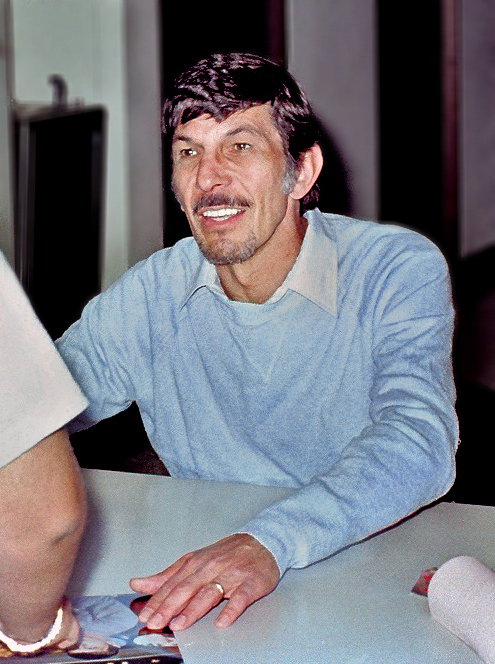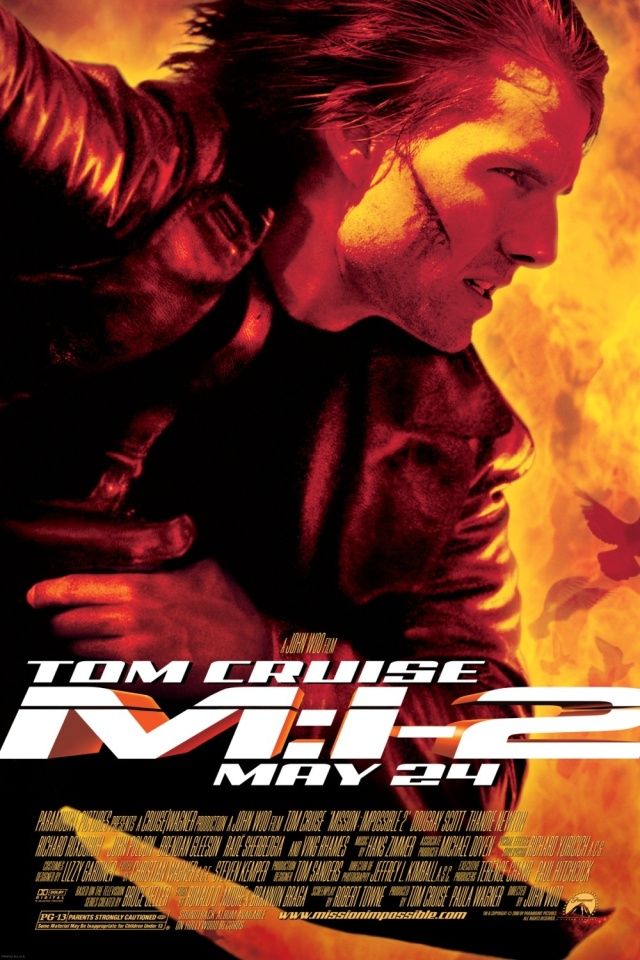
The world of television has given us countless stories and memorable moments, but what truly makes a show resonate across generations? It’s often the characters – those fictional personalities who become like family, taking up permanent residence in our living rooms. We invest in their journeys, celebrate their triumphs, and empathize with their struggles, making them far more than just figures on a screen.
Great TV characters achieve iconic status through a perfect storm of exceptional writing, powerful actor performances, significant cultural impact, and an enduring connection with their audience. They possess unique personality traits, undergo meaningful development, and deliver unforgettable dialogue that enters popular culture. These are the figures who fundamentally changed how we experience television, proving that character greatness isn’t just about popularity—it’s about lasting cultural impact and the ability to remain relevant across different viewing generations.
Join us on a journey to celebrate some of these incredible personalities and the brilliant actors who breathed life into them. We’re talking about characters who, after thousands of hours of screen time and years of cultural conversations, have truly left an indelible mark. They’ve not only entertained us but have also transformed the medium into an art form, setting new standards for character creation and emotional depth.

1. **Walter White (Bryan Cranston)**:Walter White, played by Bryan Cranston, stands as one of the most compelling TV characters ever created, a testament to a meticulously crafted arc and transformative performance. Initially a mild-mannered high school chemistry teacher, his descent into the ruthless drug kingpin Heisenberg remains television’s most compelling character arc. Cranston’s portrayal masterfully conveyed the subtle shifts and desperate motivations, showing how pride and desperation can corrupt absolutely.
Each season of “Breaking Bad” revealed new depths of Walter’s capacity for self-deception and moral compromise. His journey from protagonist to antagonist over five seasons represents the most complete character transformation in television history, forcing viewers to confront their own moral flexibility. The character’s duality, balancing family man and criminal mastermind, kept audiences on the edge of their seats, embodying the phrase “breaking bad” as he spiraled deeper into crime.
Walter White revolutionized the perception of an antihero, proving audiences would embrace a morally complex protagonist whose actions pushed ethical boundaries. His famous “I am the one who knocks” speech became an instant cultural phenomenon, solidifying his place as one of TV’s greatest antiheroes. This iconic line and chilling transformation cemented Bryan Cranston’s legacy and provided a blueprint for future prestige drama protagonists, showcasing the profound impact a single character can have.

2. **Tony Soprano (James Gandolfini)**:Before Walter White, there was Tony Soprano, a character who revolutionized television by proving audiences would embrace a morally complex protagonist. James Gandolfini’s unforgettable portrayal of the mob boss in “The Sopranos” combined vulnerability with violence in ways never seen on TV. Struggling with anxiety and depression, Tony was both brutal and surprisingly vulnerable, making him one of the most complex characters in TV history.
Tony’s therapy sessions with Dr. Melfi were a groundbreaking narrative device, exposing his inner conflicts and offering deep psychological insight. These sessions allowed audiences to both sympathize with and fear him, creating an unprecedented level of intimacy with a criminal lead. His panic attacks, for instance, humanized a mob boss in ways previously unimaginable, drawing viewers into his troubled psyche.
“The Sopranos” changed television forever, and Tony Soprano remains its unforgettable heart. His internal battles and moral dilemmas made him relatable despite his criminal lifestyle, paving the way for an entire generation of flawed antiheroes. As Alan Sepinwall noted, “Tony Soprano made it acceptable for TV protagonists to be deeply flawed,” cementing Gandolfini’s performance as a pivotal moment in television history.

3. **Michael Scott (Steve Carell)**:Moving from dramatic depths, we find comedic genius in Michael Scott, portrayed by Steve Carell in “The Office.” Carell’s nuanced performance transformed Michael from an often insufferable boss into one of the most beloved comedic characters. His desperate need for friendship made him painfully relatable, creating a perfect balance of cringe comedy and heartfelt emotion.
Michael’s malapropisms, misunderstandings, and awkward attempts at humor created endless comedy gold. Phrases like “That’s what she said” became an inescapable cultural phenomenon, entering popular culture as universal references. Despite his many flaws, his genuine care for his employees shone through, revealing his true inner self in tender moments.
His exit from the show was one of TV’s most emotional moments, a testament to his irreplaceable value and the profound impact even a ridiculous character can have. Michael Scott represents the most influential sitcom character of the 2000s, proving humor could carry significant emotional weight and audiences would embrace genuinely endearing, imperfect characters.

4. **Tyrion Lannister (Peter Dinklage)**:In the vast and intricate world of Westeros, “Game of Thrones” introduced many unforgettable characters, but Tyrion Lannister, brought to life by Peter Dinklage, stands out. Tyrion leveraged his intelligence and sharp wit as weapons in a world valuing brute strength. Dinklage’s Emmy-winning performance elevated every scene, captivating millions and making him one of the series’ most beloved figures.
Tyrion’s journey from underestimated family outcast to Hand of the Queen demonstrated profound growth and resilience. His ability to navigate political intrigue and survive treacherous situations through sheer intellect endeared him to fans. Lines like “I drink and I know things” became instantly iconic, showcasing his distinct personality and quick wit.
His trial speech remains one of television’s most powerful moments, a testament to the depth Dinklage brought to the role. Tyrion proved that physical limitations mean nothing compared to mental prowess, challenging conventional notions of heroism and power. His character offered a compelling narrative emphasizing intellect over physical might, solidifying his iconic place in modern television drama.

5. **Sheldon Cooper (Jim Parsons)**:Few characters have left as big a mark on modern sitcoms as Sheldon Cooper, portrayed by Jim Parsons in “The Big Bang Theory.” Parsons’ exceptional performance captured Sheldon’s genius-level intellect, quirky habits, and often complete lack of social skills, making him both frustratingly hilarious and surprisingly endearing. His unique perspective provided endless comedic moments, a cornerstone of the show’s success.
Sheldon’s eccentricities, from his spot on the couch to his precise routines, defined his unique personality traits. Despite his initial isolation, his friendships and relationship with Amy allowed for significant character development. This journey from social awkwardness to forming meaningful relationships was a core element of the show’s charm.
Parsons’ portrayal earned him numerous accolades, making a character who could easily be unlikable into someone fans genuinely rooted for. Sheldon Cooper proved that a character driven by intellectual pretension and social ineptitude could achieve mainstream success, demonstrating that authentic growth is possible and rewarding for unconventional individuals.

6. **Buffy Summers (Sarah Michelle Gellar)**:Buffy Summers, brought to life by Sarah Michelle Gellar in “Buffy the Vampire Slayer,” unequivocally redefined what it meant to be a strong female protagonist. As a high school student chosen to battle supernatural threats, Buffy wasn’t just physically powerful; she was also emotionally complex and relatable. Her character provided a groundbreaking portrayal of female strength, balancing action with genuine vulnerability.
Buffy’s struggles with identity, relationships, and the immense responsibility of being the Slayer made “Buffy the Vampire Slayer” a truly groundbreaking show. She navigated teenage perils alongside the burden of saving the world, a narrative complexity that resonated globally. Her strong female friendships set new standards for television relationships.
Gellar’s performance showcased a character fiercely independent without sacrificing warmth, proving women could carry shows and drive narratives with profound emotional depth. Buffy’s blend of strength and vulnerability influenced how television portrays marginalized communities and elevated genre television to tackle serious themes, cementing her legacy as an iconic figure in pop culture.

7. **Mr. Spock (Leonard Nimoy)**:No discussion of iconic TV characters would be complete without Mr. Spock, masterfully portrayed by Leonard Nimoy in “Star Trek: The Original Series.” Nimoy’s Spock remains one of the most legendary characters in sci-fi history, whose half-human, half-Vulcan nature made him a fascinating study of logic versus emotion. His struggle to balance these dual heritages resonated deeply with audiences.
Spock’s signature phrase, “Live long and prosper,” along with his calm, intelligent demeanor, became instantly recognizable and helped define “Star Trek.” His character transcended the screen, influencing real-world behavior and inspiring generations of fans and scientists. He established the template for science fiction heroes who could combine action with thoughtful contemplation.
Nimoy’s unique delivery and consistent portrayal of Spock’s strict adherence to logic, punctuated by flashes of human emotion, created a character relevant across different viewing generations. Spock proved that genre television could tackle serious themes and profound ethical dilemmas, contributing significantly to the cultural zeitgeist and influencing how complex, thoughtful beings are portrayed.
Diving further into the pantheon of television legends, we continue our celebration of characters who have etched themselves into our collective memory. These are the figures who don’t just entertain us for an hour each week but leave a lasting impression, influencing how we speak, what we watch, and even how we view the world around us. From animated everymen to powerful queens and enigmatic fixers, get ready to discover more incredible personalities and the brilliant actors who brought them to life, solidifying their status as true pop culture touchstones.

8. **Homer Simpson (Dan Castellaneta)**:For over three decades, Homer Simpson has been the undisputed face of “The Simpsons,” transforming him into one of the most recognizable characters in television history. His enduring appeal lies in his representation of the quintessential American everyman, navigating life’s challenges with a healthy dose of humor and often surprising wisdom. He’s a character whose simple desires and relatable struggles resonate with audiences across generations.
Homer’s impact on pop culture is nothing short of legendary. His iconic catchphrases, most notably “D’oh!”, have transcended the screen, becoming an official entry in the Oxford English Dictionary in 2001. His unwavering love for donuts and Duff Beer has become synonymous with his persona, creating instant cultural references that are recognized globally.
Despite his many flaws and frequent mishaps, Homer’s genuine love for his family always shines through, providing a grounding emotional core to the show’s often satirical adventures. This balance of buffoonery and heartfelt affection makes him an enduring TV icon, proving that even the most imperfect characters can capture our hearts and provide unexpected moments of warmth. His character has influenced countless other animated sitcoms, setting a high standard for the genre and solidifying his place as a template for animated sitcom fathers.

9. **Don Draper (Jon Hamm)**:”Mad Men” introduced us to Don Draper, brought to life with enigmatic brilliance by Jon Hamm, creating the ultimate mysterious antihero of the 1960s. Don was not merely a brilliant ad executive but a man deeply troubled, embodying the intricate complexities of ambition, identity, and profound self-destruction. Hamm’s performance masterfully captured both his magnetic charisma and a palpable inner emptiness.
Don’s mysterious past added layers of intrigue to every interaction, making him a character viewers couldn’t quite pin down, yet couldn’t look away from. His advertising pitches were more than just sales tactics; they often became profound philosophical meditations on American identity and the pursuit of happiness, revealing the depth behind the glossy surface of his life.
His journey from outward success to profound personal crisis remains one of television’s most compelling character studies. Don consistently showed us that material success and genuine happiness rarely align, challenging the era’s aspirational narratives. His enigmatic nature and internal struggles captivated audiences, making him a compelling figure who showcased the darker side of the American Dream, leaving a lasting impression and even influencing a resurgence of 1960s style.

10. **Daenerys Targaryen (Emilia Clarke)**:In the sprawling epic of “Game of Thrones,” Daenerys Targaryen, powerfully portrayed by Emilia Clarke, commanded one of the most dramatic character arcs in television history. Her transformation from an exiled princess to the formidable Mother of Dragons was a journey filled with both exhilarating triumphs and heart-wrenching tragedies, captivating audiences worldwide with her fierce determination.
Daenerys swiftly became a potent symbol of freedom and power, her narrative inspiring many through her relentless ambition and unwavering resolve to reclaim her birthright. Her iconic dragons and growing army represented an unstoppable force, demonstrating her formidable presence and solidifying her as a central, compelling figure in the series.
While her final storyline proved controversial for many fans, Daenerys’s immense impact on television remains undeniable. Her rise to power and eventual fall sparked global conversations, showcasing the profound effect a single character’s journey can have on millions of viewers and on the narrative landscape of prestige television. She was a character who dared to challenge the status quo, embodying a unique blend of vulnerability and absolute command.
Read more about: The Ultimate Ranking: Unpacking the 9 Best TV Finales That Blew Our Minds and Left Us Speechless

11. **Phoebe Buffay (Lisa Kudrow)**:While all six main characters in “Friends” were undeniably unforgettable, Phoebe Buffay, brought to life with inimitable charm by Lisa Kudrow, was truly one of a kind. Her eccentric personality, delightfully bizarre songs like “Smelly Cat,” and surprisingly profound wisdom made her stand out as a unique and essential element of the beloved sitcom.
Phoebe’s unpredictable nature provided endless comedic moments, keeping audiences on their toes with her unconventional logic and whimsical worldview. She was a character who marched to the beat of her own drum, unafraid to express her true self, which made her both hilarious and refreshingly authentic amidst the more conventional dynamics of her friends.
Her quirks and unique outlook on life added a special, irreplaceable charm to “Friends,” distinguishing it from other sitcoms of its era. Whether she was recounting outlandish stories from her past or offering unexpected insights, Phoebe consistently enriched the show with a sense of whimsy and spontaneity that viewers adored. She remains an unforgettable sitcom character, celebrated for her ability to blend humor with genuine heart.
Read more about: Remembering the Luminaries: Celebrating the Lives and Legacies of the Stars We Lost

12. **Eric Cartman (Trey Parker)**:From the irreverent world of “South Park” emerges Eric Cartman, a character who is simultaneously rude, selfish, and shockingly intelligent, making him one of the most outrageous creations in animation history. Trey Parker’s voice performance makes evil hilarious, delivering lines that push boundaries and challenge societal norms with audacious humor.
Cartman’s politically incorrect behavior and elaborately schemes are central to his comedic genius, often reaching absurd levels while maintaining a twisted internal logic. He consistently pushes the limits of what is acceptable on television, making him one of the most talked-about and controversial yet iconic figures in animation. His antics ensure that “South Park” remains a cultural touchstone for satire.
Despite his myriad flaws and often reprehensible actions, Cartman remains a staple of the series, providing endless comedic material that targets American excess and entitlement. He forces viewers to confront uncomfortable truths through laughter, demonstrating that animation can tackle any subject matter, no matter how sensitive, with biting social commentary. His character embodies a unique brand of satire that has cemented his legacy.

13. **Eleven (Millie Bobby Brown)**:”Stranger Things” simply wouldn’t be the same without the compelling presence of Eleven, masterfully portrayed by Millie Bobby Brown. Her character, defined by powerful psychic abilities, profound emotional depth, and a mysterious past, quickly became one of the most fascinating figures in modern television. Brown’s mostly wordless early performance conveyed volumes, drawing viewers into Eleven’s world with incredible nuance.
Eleven’s journey from a lab experiment, isolated and exploited, to a beloved friend and courageous hero, captured the hearts of viewers across the globe. Her resilience and remarkable growth throughout the series added a deep layer of emotional resonance, making her a fan favorite and a symbol of strength forged through adversity.
Her unique powers and relatable struggles, particularly her quest for belonging and understanding, resonated deeply with audiences. The character’s famous “friends don’t lie” philosophy became a cultural touchstone, emphasizing loyalty and trust. Eleven proved that young characters could not only anchor complex narratives but also drive profound emotional arcs, contributing significantly to the show’s massive success and cultural impact.

14. **Rick Sanchez (Justin Roiland)**:The mad scientist Rick Sanchez from “Rick and Morty” stands as one of the most unique and boundary-pushing animated characters of the 21st century. His defining characteristics—a profoundly nihilistic outlook, a genius-level intellect that borders on omniscience, and a penchant for unpredictable, interdimensional adventures—make him one of the most quoted and discussed characters in modern television.
Rick’s complex personality and constant existential musings have captivated audiences, sparking countless discussions and fan theories about the nature of reality and meaning. Justin Roiland’s often improvised delivery adds a chaotic, unhinged energy to the character, making every line delivery a masterclass in comedic timing and philosophical despair.
His character challenges conventional storytelling, blending irreverent humor with profound philosophical themes that explore everything from the meaninglessness of existence to the complexities of family dynamics. The anarchic energy of his adventures, often grounded by his complicated relationship with his grandson Morty, creates a dynamic that is both wildly entertaining and surprisingly thought-provoking. Rick Sanchez proves that animation can be a vehicle for truly complex, philosophically rich adult drama, pushing the boundaries of what a cartoon character can represent.
As we wrap up our deep dive into these television titans, it’s clear that what makes a character truly iconic transcends mere screen time or fleeting popularity. It’s about the unique blend of exceptional writing, transformative performances, and an indelible impact on our culture. From Homer Simpson’s everyman relatability to Don Draper’s enigmatic complexity, and from Daenerys’s epic journey to Rick Sanchez’s nihilistic genius, these characters have fundamentally shaped how we experience and talk about television. They are more than just figures on a screen; they are reflections of ourselves, our society, and the boundless creativity that continues to push the boundaries of storytelling. As television evolves, these iconic personalities will undoubtedly remain touchstones, inspiring future generations of creators to craft characters who, too, will live long and prosper in our hearts and minds.



